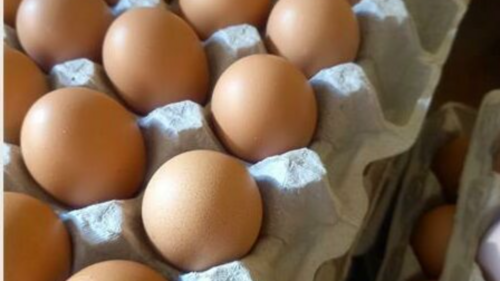News
Key Information About the Avian Influenza Outbreak

As the avian influenza outbreak creates an egg shortage on retail shelves, we turn to Jacques Roets, a divisional commodities manager at the Spar Group, to shed light on how this situation affects their egg supplies and how they plan to navigate the challenges. Spar acknowledges that the outbreak has significantly impacted some of its egg producers, leading to constrained stock availability and a challenging demand and supply scenario. While the timeline for the normalisation of egg supply remains uncertain, Spar is closely monitoring the situation.
Also Read: Call for Ramaphosa’s Intervention in SOE Leadership Crisis
Roets explains that they are collaborating with the South African Poultry Association (SAPA) and approved private label suppliers to secure stock aligned with their typical customer demand. Additionally, they actively engage with larger suppliers and explore opportunities to ensure a consistent egg supply and reduce risks. This diversification approach includes discussions with several southern African countries about the potential importation of eggs.
Spar is implementing stringent control measures to maintain food safety and quality standards. They manage stock levels through constant inventory monitoring and adjusting order quantities as needed. Furthermore, the company is focused on maintaining a well-balanced supply chain.
In response to the increased prices of eggs, consumers like Kate Ndona express their concerns and frustrations. Spar customers have observed that egg prices have surged at some stores, making this staple item feel like a luxury. Some wonder why the cost of eggs has risen while their income remains unchanged.
Explaining the avian influenza, Izaak Breitenbach from South African Poultry assures consumers that there is no need to panic about contracting the virus. Avian influenza primarily affects poultry and does not pose a threat to humans. He emphasises that when a flock is infected, it is called on-site, and all eggs are destroyed. This ensures that no affected birds or eggs enter the food supply chain, assuring the safety of chicken and eggs for consumers. If someone encounters an affected bird, they won’t be exposed to the virus since all infected birds are culled and disposed of on the farm.
Consumer confusion regarding the outbreak and its impact on egg availability and prices is evident. However, Spar is taking steps to address these challenges and ensure a consistent supply of eggs while maintaining high food safety standards.
Source: Here’s what to know about the avian influenza outbreak
Also Read:
Follow us on Google News
Photo: Supplied by Fourways Review






















